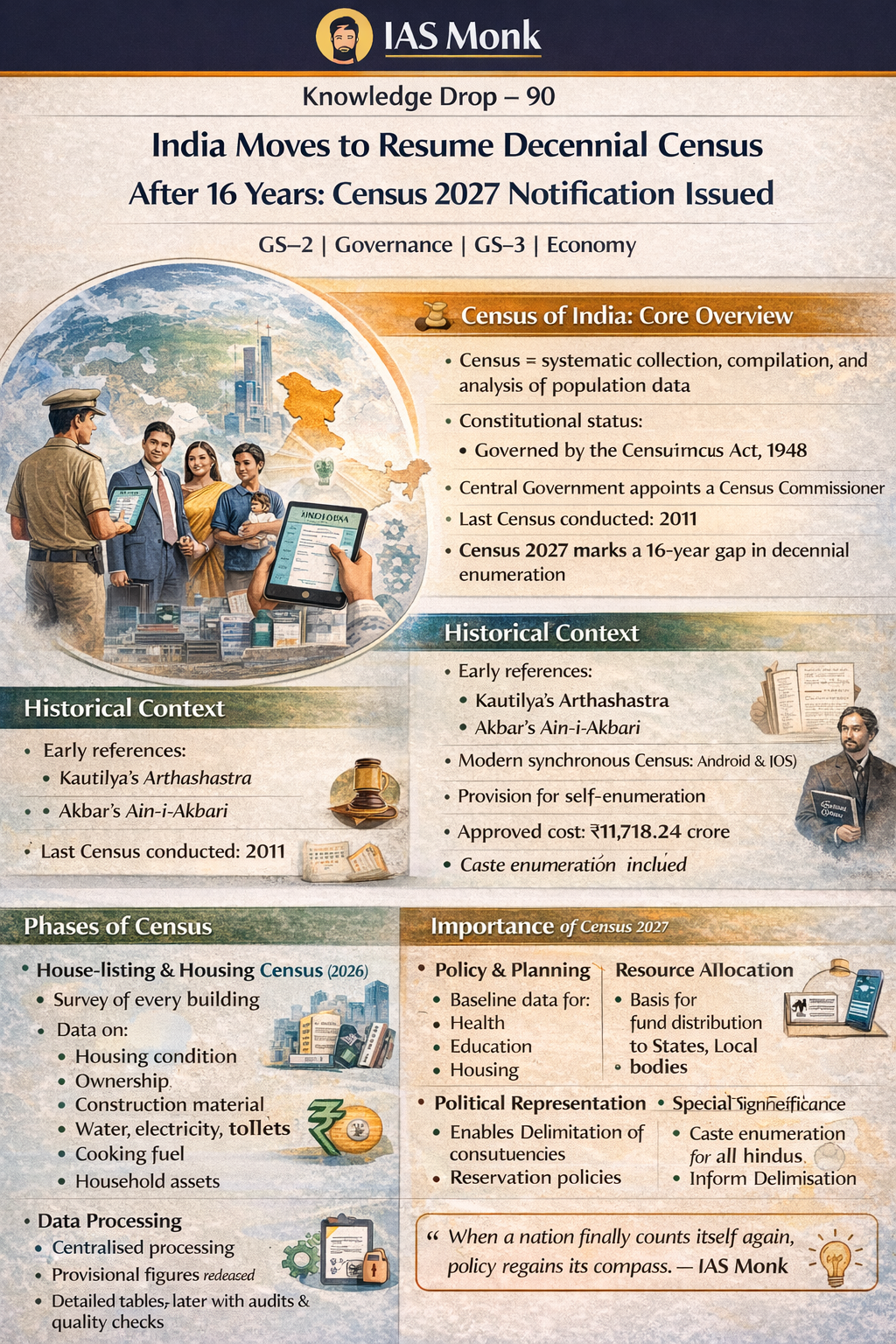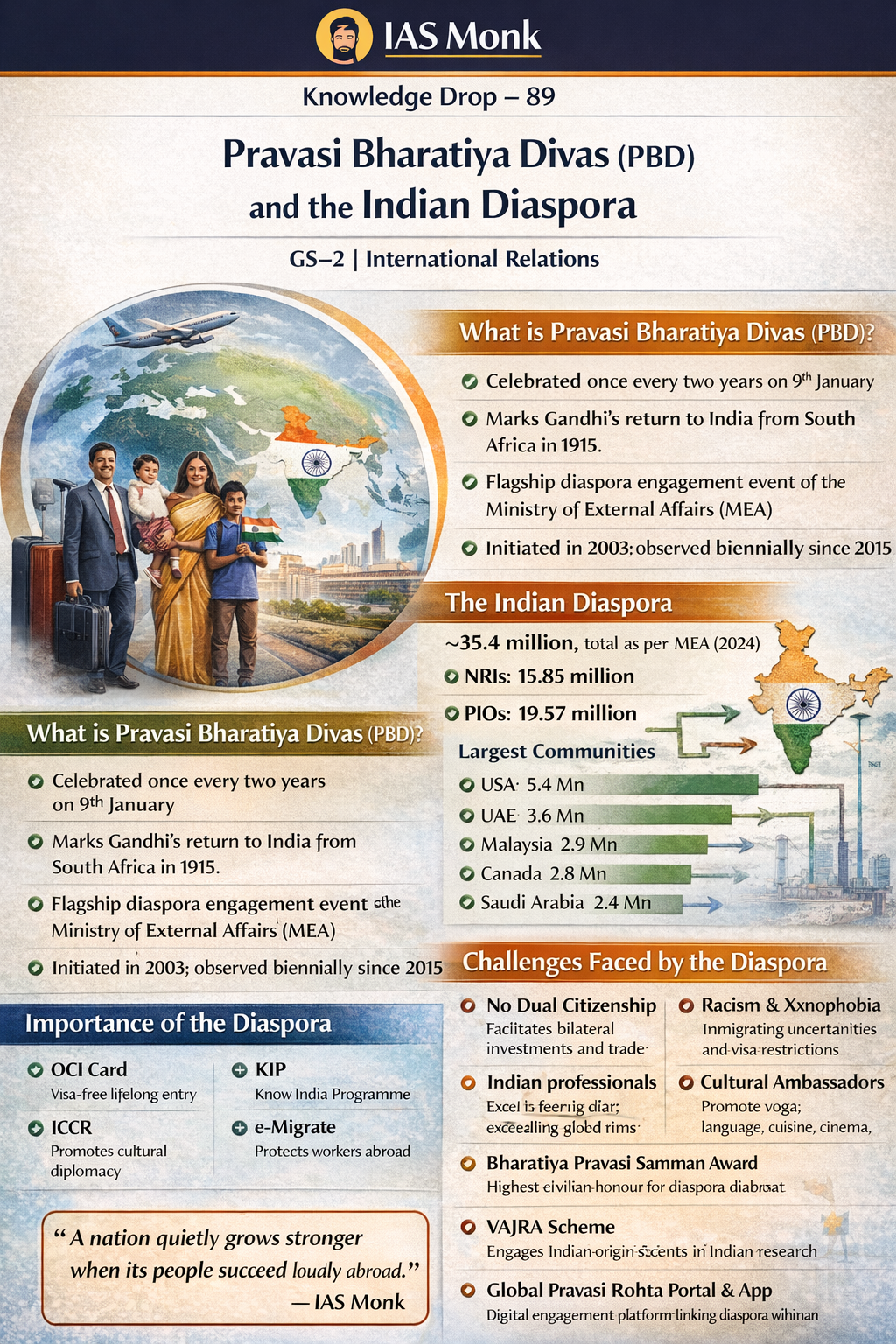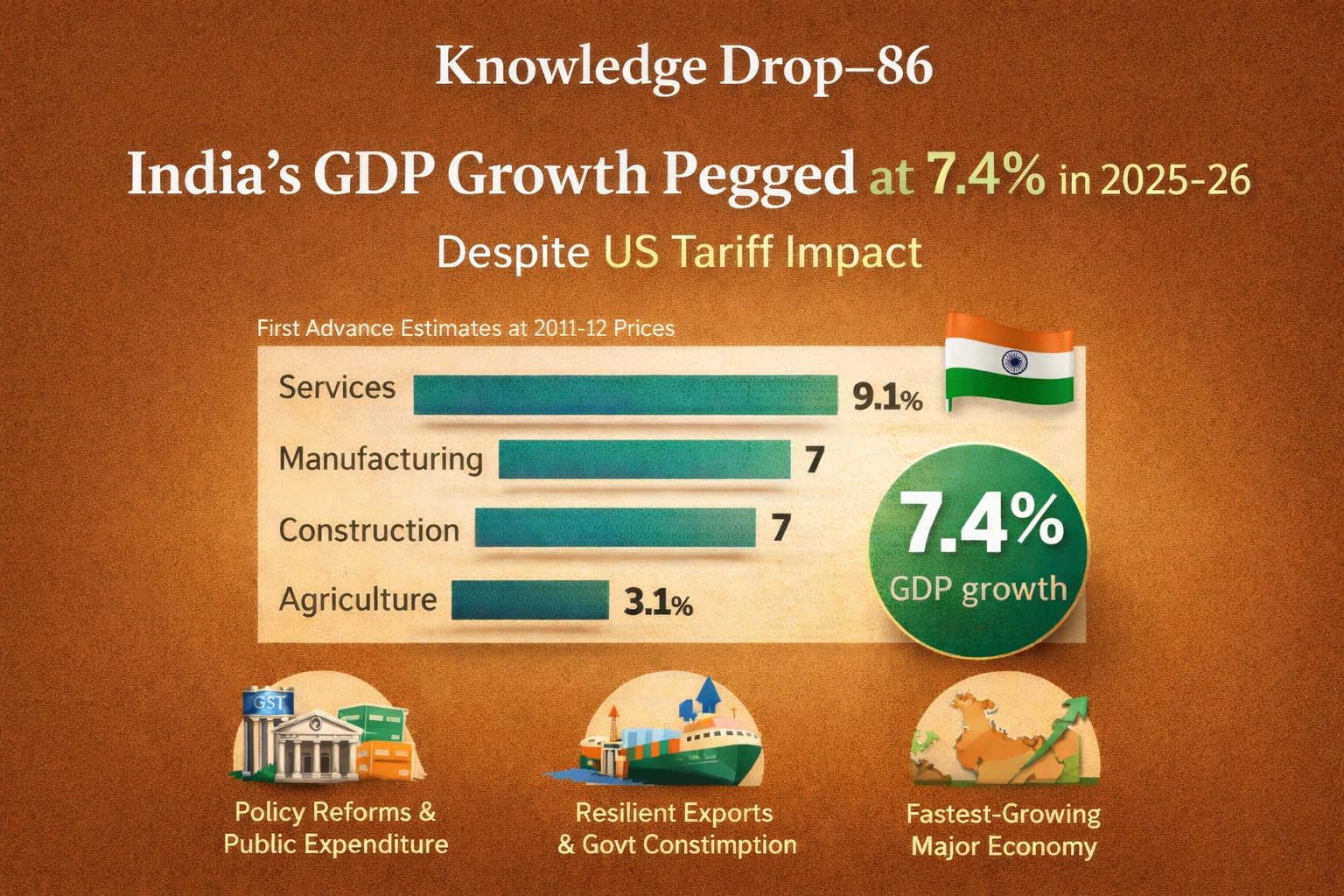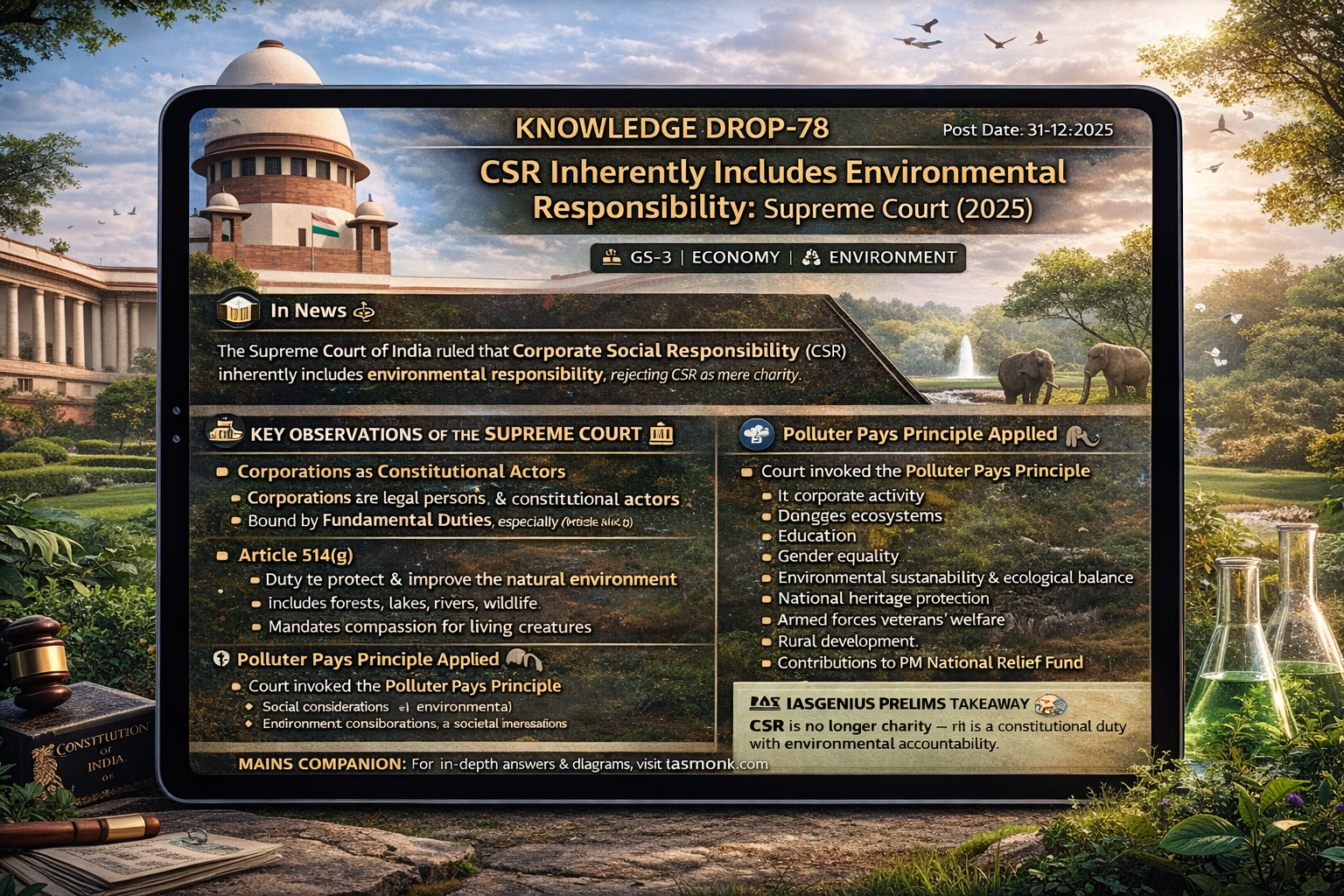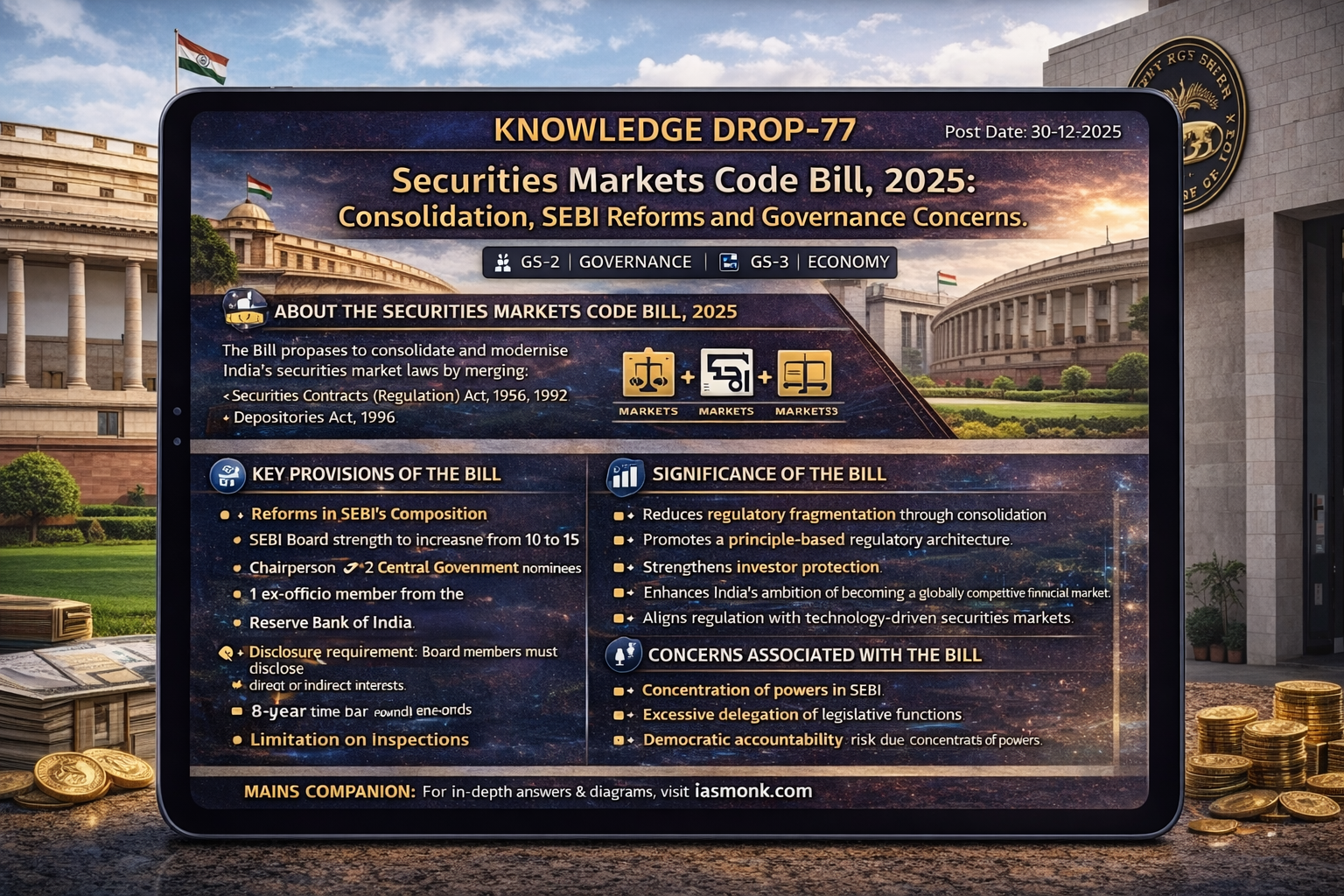
🧭June 14, 2025 Post 4: On Uniform Civil Code | High Quality Mains Essay: Uniform Civil Code and Judicial Intervention: A Constitutional and Ethical Crossroad | IAS-2026 :Prelims MCQs
On Uniform Civil Code

NATIONAL
📅 Post Date: June 14, 2025
📘 Thematic Focus: Polity | Social Justice | Secular Governance
🌀 Opening Whisper
“When tradition meets uniformity, the highest court must weigh the scales of unity and choice.”
🔍
📘 Concept Explainer: The UCC in the Indian Context
- Uniform Civil Code (UCC) aims to unify laws of marriage, divorce, inheritance, adoption, graphs across all religions— currently managed by religious personal laws.
- Article 44 of the Constitution encourages UCC as a Directive Principle, but it is not enforceable like Fundamental Rights.
- High Courts and Supreme Court have recognized personal law reform as a matter for Parliament and legislatures, rather than activism from the bench.
🧭 GS Mains Mapping
- GS Paper 2 – Secularism | Constitutional Provisions | Legislative Competence
- GS Paper 4 – Ethical Balance: Equality, Religious Pluralism, Legislative vs Judicial Roles
- Essay – “Constitutional Morality and Personal Law: Analyzing UCC in a Diverse Democracy”
💭 A Thought Spark — by IAS Monk
“Uniform does not always mean unfair, but fairness requires empathy of diversity.”
High Quality Mains Essay For Practice :
Word Limit 1000-1200
Uniform Civil Code and Judicial Intervention: A Constitutional and Ethical Crossroad
The Uniform Civil Code (UCC) has long stood as one of the most contentious and philosophically charged aspirations enshrined in the Indian Constitution. Located within the Directive Principles of State Policy under Article 44, it envisions a legal framework that unifies personal laws across communities, thereby advancing national integration and gender justice. However, the recent intervention by the Supreme Court of India to stay the Rajasthan Assembly’s resolution on a state-level UCC reignites enduring debates around federalism, secularism, legislative primacy, and the ethical compass of judicial power.
I. The Constitutional Background: Between Directive and Right
The Directive Principles of State Policy, including Article 44 which advocates for a Uniform Civil Code, are non-justiciable—meaning they are not legally enforceable by courts. They serve as moral guidelines for the state to apply in the governance of the country. On the other hand, Fundamental Rights, such as the freedom of religion (Articles 25–28) and the right to equality (Articles 14–18), are legally binding.
This dual structure creates a constitutional tension: should the State implement a Uniform Civil Code in a secular democracy, even if it offends the religious beliefs or customs of certain groups?
The Supreme Court’s stay on the Rajasthan Assembly’s move to introduce UCC at the state level brings this tension to a head. The judiciary is now faced with the delicate task of balancing legislative prerogative with constitutional morality, especially in a democracy where social transformation must respect diversity.
II. Judicial Activism vs Legislative Primacy
The Indian Supreme Court has in the past nudged the Executive and Legislature toward implementing the UCC. In landmark cases like Sarla Mudgal v. Union of India (1995) and Shayara Bano v. Union of India (2017) (on triple talaq), the Court emphasized the need for reform in personal laws to ensure equality and justice, especially for women. These interventions, though rooted in the spirit of the Constitution, raised concerns about judicial overreach into legislative functions.
The Rajasthan Government’s resolution to introduce UCC via a state-level law, now stayed by the Court, is itself a unique constitutional experiment. Personal laws have typically been governed by central laws or religious customs. Yet, there is no explicit bar on states legislating on concurrent matters like marriage, adoption, or inheritance—so long as they do not contradict central laws.
Hence, the judicial stay indirectly questions whether personal laws can be reformed at the state level, potentially opening the door to fragmented secularism or laboratory federalism, depending on one’s perspective.
III. The Ethical Dilemma: One Law for All vs Pluralism of Beliefs
On ethical grounds, the idea of UCC appeals to the principle of equality before the law. It promises to correct gender-based inequalities embedded in certain personal laws and offers a modern framework for citizenship. However, critics argue that enforcing a singular code may undermine the cultural and religious autonomy of various communities—especially minorities.
The ethical paradox is clear:
- Is it just to impose uniformity at the cost of diversity?
- Does equality mean sameness or fairness tailored to context?
A democracy as plural as India must tread carefully. The ethical legitimacy of the law arises not merely from its intent but from its capacity to be inclusive and consultative.
IV. Federalism and Legal Competence: Who Should Legislate UCC?
While the Constitution places “marriage and divorce; infants and minors; adoption; wills; intestacy and succession” under the Concurrent List (List III) of the Seventh Schedule, both Parliament and state legislatures can legislate on them. But in practice, UCC has been perceived as a matter for national consensus and central legislation, primarily to avoid inconsistencies between states.
If one state adopts a UCC and others don’t, citizens’ rights will vary across states, defeating the very idea of uniformity.
This is why the judicial review of Rajasthan’s action raises valid constitutional questions:
- Should UCC be piloted at the state level, or must it be a central initiative?
- Does fragmenting civil codes across states erode legal coherence?
The Court’s intervention may be seen as a step to prevent constitutional disarray, ensuring any UCC is enacted in a harmonized, pan-India manner.
V. Comparative Perspectives: UCC Around the World
Globally, most secular democracies operate under a unified civil code. France, for instance, has a long history of a common civil code since Napoleonic times. However, these societies are more homogenous than India in terms of religion and ethnicity.
In contrast, India’s diversity requires that reforms respect multi-faith sensibilities, with gradual harmonization through public consensus, law commission recommendations, and community dialogues. The success of legislation like the Hindu Code Bill (1955–56) offers a model—although it too was controversial in its time.
VI. Implications for UPSC and Governance
For aspirants of the Indian Civil Services and students of constitutional law, the UCC debate is not only about legal reform but also about governance ethics, federal balance, and political maturity.
This incident involving Rajasthan highlights:
- The interplay of state autonomy and national uniformity
- The role of judiciary as constitutional guardian and potential disruptor
- The challenge of institutional boundaries in a constitutional democracy
These themes map directly onto GS Paper 2 (Polity and Governance) and GS Paper 4 (Ethics).
VII. Conclusion: The Path Forward
The Supreme Court’s stay on the Rajasthan UCC resolution is not a verdict against reform but a pause for reflection. Any attempt to implement UCC must be inclusive, secular, and respectful of India’s plural identity. The judiciary must restrain itself from becoming the legislature, and the states must ensure their zeal for reform does not bypass dialogue, diversity, or due process.
Ultimately, a Uniform Civil Code should not be a legal imposition, but a moral evolution—crafted through constitutional dialogue, social readiness, and a shared vision for equality.
✍️ Closing Quote
“True freedom lies in the harmony of laws with conscience, and justice with diversity.” — IAS Monk
Target IAS-26: Daily MCQs :
📌 Prelims Practice MCQs
Topic: Uniform Civil code
MCQ 1 – Type 1: How many of the above statements are correct?
Consider the following statements about the Uniform Civil Code (UCC):
1. UCC is part of the Fundamental Rights under Article 25.
2. UCC aims to replace religious personal laws with a common civil code for all citizens.
3. Article 44 of the Constitution directs the State to implement the UCC.
4. States can legislate on matters like marriage and divorce under the Concurrent List.
A) Only one
B) Only two
C) Only three
D) All four
🌀 Didn’t get it? Click here (▸) for the Correct Answer & Explanation
✅ Correct Answer: B) Only three
🧠 Explanation:
•1) ❌ False – UCC is under Directive Principles (Article 44), not Fundamental Rights.
•2) ✅ True – UCC aims for common civil laws irrespective of religion.
•3) ✅ True – Article 44 encourages the State to implement UCC.
•4) ✅ True – Marriage, divorce, adoption etc., are in the Concurrent List.
MCQ 2 – Type 2: Two Statements Based
Consider the following two statements:
1. The Supreme Court has the constitutional authority to stay state-level legislation or resolutions if they pose fundamental legal questions.
2. A state legislature can enact its own Uniform Civil Code without any coordination with Parliament.
Which of the above statements is/are correct?
A) Only 1 is correct
B) Only 2 is correct
C) Both are correct
D) Neither is correct
🌀 Didn’t get it? Click here (▸) for the Correct Answer & Explanation
✅ Correct Answer: A) Only 1 is correct
🧠 Explanation:
•1) ✅ True – SC can stay laws/resolutions pending constitutional review.
•2) ❌ False – While states can legislate on concurrent subjects, UCC’s sensitive nature requires national coordination.
MCQ 3 – Type 3: Which of the statements is/are correct?
Which of the following are valid constitutional or ethical considerations regarding the UCC?
1. Respecting India’s religious diversity
2. Promoting gender justice and legal uniformity
3. Judicial overreach into legislative matters
4. Implementing UCC only through constitutional amendments
Select correct answer from the codes given below:
A) 1, 2 and 3 only
B) 1, 2 and 4 only
C) 2, 3 and 4 only
D) All four
🌀 Didn’t get it? Click here (▸) for the Correct Answer & Explanation
✅ Correct Answer: A) 1, 2 and 3 only
🧠 Explanation:
•1) ✅ True – Religious pluralism is constitutionally protected.
•2) ✅ True – UCC is often justified for promoting gender justice.
•3) ✅ True – Judicial activism has raised concerns in UCC-related debates.
•4) ❌ False – UCC can be legislated without constitutional amendment, as it’s not a fundamental right.
MCQ 4 – Type 4: Direct Fact
Which Article of the Indian Constitution mentions the Uniform Civil Code as a Directive Principle of State Policy?
A) Article 25
B) Article 44
C) Article 21
D) Article 51A
🌀 Didn’t get it? Click here (▸) for the Correct Answer & Explanation.
✅ Correct Answer: B) Article 44
🧠 Explanation:
•Article 44 under Part IV of the Constitution directs the State to secure for citizens a Uniform Civil Code.

